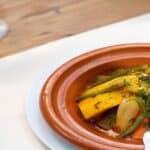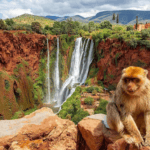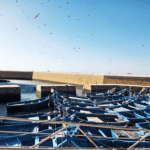Argan oil, also known as “liquid gold,” is a precious oil derived from the kernels of the argan tree’s fruit. This unique oil has been used for centuries in Morocco and is celebrated for its numerous health benefits and versatile uses.
The production of argan oil involves a meticulous process that includes removing the pulp from the fruit, breaking the pit to obtain the seeds, and grinding the seeds to extract the oil. While traditional methods are time-consuming and often carried out by women, industrial extraction methods are now employed as well.
- Argan oil is derived from the kernels of the argan tree’s fruit.
- The production process includes removing the pulp, breaking the pit, and grinding the seeds.
- Traditional methods involve women in the process, while industrial methods streamline production.
- Contrary to a popular urban legend, goats do not produce argan oil, but they play a role in dispersing the seeds.
- Argan oil offers numerous health benefits and is widely used in culinary and traditional practices.
Health Benefits of Argan Oil
Argan oil is a natural wonder packed with essential nutrients that promote overall health and well-being. With its high concentration of fatty acids and vitamin E, it offers an array of benefits for both the body and the skin.
Rich in Essential Nutrients
Argan oil is a rich source of linoleic and oleic fatty acids, which are essential for maintaining a healthy body. These fatty acids play a crucial role in supporting cardiovascular health, brain function, and hormone production.
Powerful Antioxidant Properties
The antioxidant content of argan oil is impressive, offering protection against inflammation and oxidative stress. These antioxidants help combat free radicals in the body, reducing the risk of chronic diseases and supporting a healthy immune system.
Promotes Heart Health
Studies have shown that argan oil may benefit heart health by reducing bad LDL cholesterol and triglyceride levels. The omega-3 fatty acids present in argan oil can help lower blood pressure and improve overall cardiovascular function.
Anti-Aging Effects on Skin
Argan oil is often hailed for its anti-aging properties. It helps reduce the appearance of fine lines and wrinkles by moisturizing and nourishing the skin. The vitamin E and antioxidants in argan oil also promote skin elasticity, giving it a youthful and radiant glow.
Beneficial for Skin and Hair
Argan oil is a versatile beauty ingredient known for its moisturizing and nourishing benefits. It can be used to hydrate dry skin, soothe irritation, and improve the overall health of the scalp. Additionally, argan oil can add shine, softness, and manageability to hair, making it a popular choice as a hair care product.
While more research is needed to fully understand the extent of argan oil’s health benefits, its use in various industries is widely recognized. Whether for its heart-healthy properties, skin-rejuvenating effects, or hair-improving qualities, argan oil offers a natural solution for those seeking a holistic approach to their well-being.
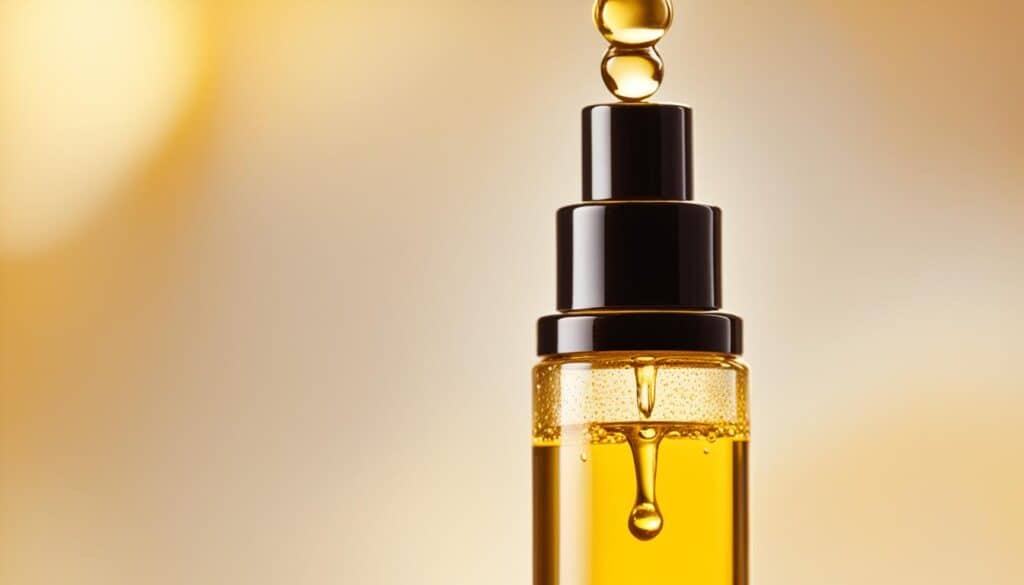
Culinary and Traditional Uses of Argan Oil
In Morocco, argan oil has long been a staple in culinary practices and traditional medicine. Known for its subtle, nutty flavor, argan oil adds a unique taste to dishes while offering various health benefits. Its versatile uses extend beyond the realm of food, making it a valuable part of Berber culture.
In Moroccan cuisine, argan oil is used to enhance the flavor and nutritional value of dishes. It can be drizzled over ground almonds and enjoyed with bread, providing a delightful combination of textures and flavors. As a dressing, argan oil adds a distinct nutty taste to salads and vegetables, elevating the overall culinary experience.
Moreover, argan oil holds a significant place in traditional medicine practices. It is believed to possess healing properties for various skin conditions, including burns, eczema, and psoriasis. The oil is used topically to soothe and nourish the skin, harnessing its natural moisturizing and antioxidant properties.
Argan oil is not only a culinary delight but also a fundamental part of Moroccan culture, passed down through generations. Its traditional uses in food and medicine showcase the richness of Moroccan heritage.
In addition to its culinary and medicinal uses, the fruit of the argan tree serves other purposes in local communities. Forage and firewood are derived from the argan tree’s fruit, providing a sustainable source of nourishment and energy for people and livestock.
Culinary and Traditional Uses of Argan Oil
| Culinary Uses | Traditional Uses |
|---|---|
| Enhance flavor in Moroccan dishes | Healing properties for skin conditions |
| Dressing for salads and vegetables | Part of Moroccan traditional medicine |
| Poured over ground almonds and bread | Forage and firewood |
Industrial Production of Argan Oil
Argan oil, a precious oil with numerous benefits, is produced through an intricate process that involves both traditional and industrial methods. While traditional production methods have been practiced for centuries, the introduction of industrial processes has revolutionized argan oil production, allowing for greater efficiency and higher volumes of oil to be extracted.
The industrial production of argan oil follows a systematic approach, consisting of three main steps: removing the dried pulp from the fruit, breaking the pit to obtain the seeds, and grinding the seeds to extract the oil. Specialized machines are used at each stage of the process, ensuring precision and consistency.
With the aid of these machines, the extraction process is streamlined, reducing the labor and time required to produce argan oil. This industrial method enables larger quantities of oil to be produced, meeting the growing demand from both local and international markets.
However, traditional methods of argan oil production continue to hold immense cultural significance in Morocco. In these methods, the process is carried out manually, often in cooperatives by local women. This labor-intensive process preserves the authenticity and traditional practices associated with argan oil production, contributing to the unique heritage of the local communities.
The industrial production of argan oil has brought about significant advancements in efficient extraction methods, while the traditional production methods ensure the preservation of cultural heritage. Morocco upholds a harmonious balance between these two approaches, providing both quality argan oil and an appreciation for its cultural and historical significance.
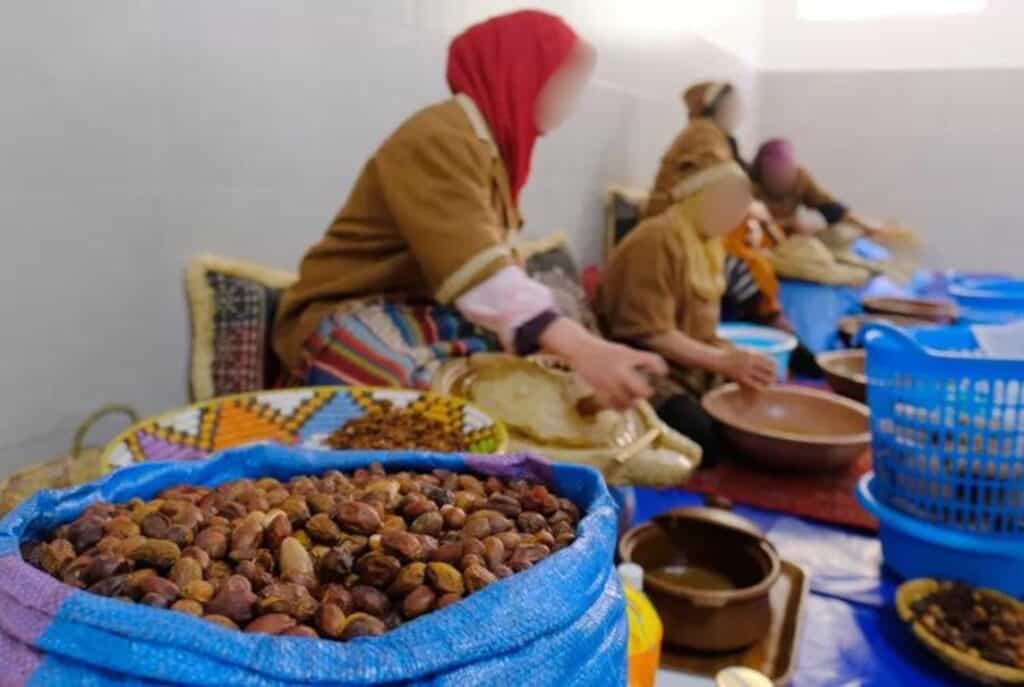
“The introduction of industrial production methods has increased the availability and accessibility of argan oil, meeting the growing global demand. However, traditional methods are equally important as they preserve the authenticity and cultural heritage associated with argan oil production.” – Fatima Hassan, Argan Oil Expert
Traditional Production of Argan Oil
In traditional argan oil production, various meticulous steps are undertaken to preserve the authenticity and cultural significance of this Moroccan treasure. The process begins by removing the outer pulp from the argan fruit, which can be achieved through drying the fruit or manually separating the pulp from the pit. Once the pits are extracted, artisans carefully crack them using stones to obtain the valuable seeds within. This labor-intensive method demands patience and precision.
After acquiring the seeds, they are fire roasted, enhancing the oil’s distinct flavor and aroma. The roasted seeds are then ground into a smooth paste using a traditional hand mill, ensuring a consistent texture and optimal oil extraction. To release the rich golden argan oil, water is gradually added to the paste, and it is skillfully kneaded until the oil is fully extracted.
Argan oil holds a vibrant cultural significance in Morocco, particularly among women. Traditionally, argan oil production is carried out by women cooperatives, providing them with a meaningful source of income and serving as a platform for them to showcase their expertise. These cooperatives, often located in regions near Agadir and Essaouira, not only preserve the art of argan oil production but also foster a sense of community and empowerment.
The traditional production methods not only contribute to the livelihood of local communities but also maintain the integrity and legacy of argan oil production. These time-honored practices ensure that each bottle of traditional argan oil is a testament to centuries of knowledge and skill passed down through generations.
The Truth About Goats and Argan Oil
Despite a popular urban legend surrounding argan oil production, goats do not actually produce argan oil. While it is true that goats are able to climb argan trees in search of food, they do not defecate the seeds that are used to make the oil. Instead, goats are ruminants, meaning they chew their cud and later spit out what they can’t digest, such as the argan pit.
The unpleasant smell sometimes associated with argan oil is actually due to the natural odor of the seed, which is roasted during the extraction process. This roasting method enhances the flavor of the oil but can give it a distinct scent. However, in industrial production, the seeds are deodorized, eliminating any unpleasant smell.
“Despite the popular belief, goats do not produce argan oil. It is a common misconception.”
While the image of goats climbing argan trees to forage may make for an interesting photo opportunity, it does not play a significant role in the actual production of argan oil in Morocco.
| Myth | Reality |
|---|---|
| Goats produce argan oil | Goats do not produce argan oil. They eat the fruit and excrete the seeds, which are then used for oil production. |
| Argan oil smells unpleasant | The natural scent of the seeds used to produce argan oil can be strong, but industrial production processes deodorize the oil, eliminating any unpleasant smell. |
Conclusion
Argan oil, derived from Morocco, is a versatile and beneficial product with numerous health advantages and applications. Rich in essential nutrients and antioxidants, this oil promotes heart health, combats skin aging, and helps alleviate various skin conditions. In addition, it serves as both a culinary ingredient and a cosmetic product for the skin and hair.
Argan oil can be found in various locations, but to ensure quality and support local producers, it is recommended to purchase directly from cooperatives near Agadir or Essaouira. By understanding the production process and dispelling common misconceptions, consumers can fully appreciate the value and versatility of argan oil.
In conclusion, argan oil is a precious product that offers a range of benefits and uses. Whether used for promoting heart health, nourishing the skin, or enhancing culinary dishes, argan oil remains a valuable item to invest in. So seek out authentic sources, discover the wonders of argan oil, and experience the many advantages it brings to your life.
FAQ
How is argan oil made in Morocco?
Argan oil in Morocco is made by removing the pulp from the fruit, breaking the pit to obtain the seeds, and grinding the seeds to extract the oil. Traditional methods involve manual labor, while industrial methods use specialized machines.
Do goats produce argan oil?
No, goats do not produce argan oil. They eat the fruit of the argan tree and spit out the seeds, which can then be used to make the oil.
What are the health benefits of argan oil?
Argan oil is rich in essential nutrients and antioxidants, which support heart health, reduce inflammation, slow down skin aging, and may have anticancer effects.
How is argan oil used in Moroccan cuisine?
Argan oil is used in Moroccan cuisine as a dressing for salads and vegetables, poured over ground almonds and eaten with bread, and to enhance the flavor and nutritional value of dishes.
How is argan oil produced industrially?
Industrial production of argan oil involves three main steps: removing the dried pulp from the fruit, breaking the pit to obtain the seeds, and grinding the seeds to extract the oil. Specialized machines are used for each phase of the process.
What is the traditional production process of argan oil?
Traditional production of argan oil involves removing the outer pulp from the pit, cracking the pit to extract the seeds, fire roasting and grinding the seeds into a paste, and kneading the paste to extract the oil. This process is time-consuming and often carried out by women in cooperatives.
Do goats play a significant role in argan oil production?
No, goats do not play a significant role in argan oil production. While they may climb argan trees to eat the fruit, they do not defecate the seeds used to make the oil.
Where can I buy argan oil?
It is recommended to buy argan oil directly from cooperatives near Agadir or Essaouira in Morocco to ensure quality and support local producers.




